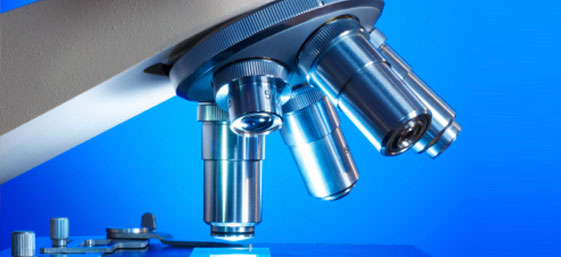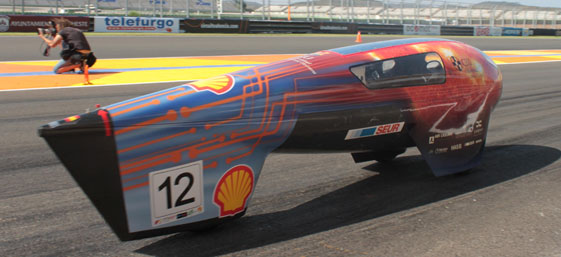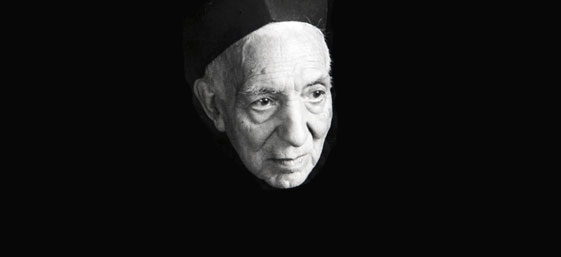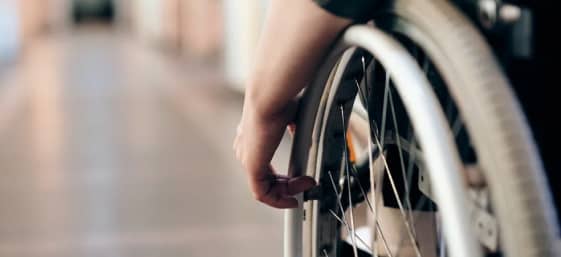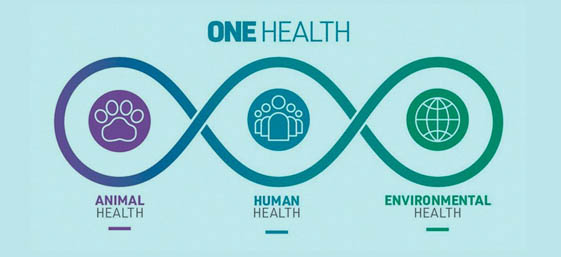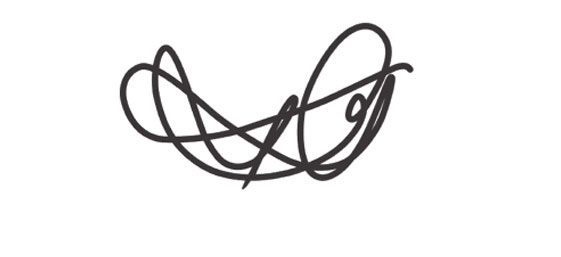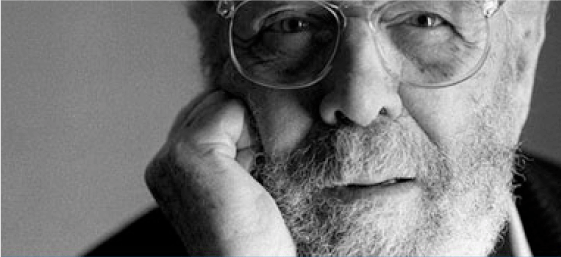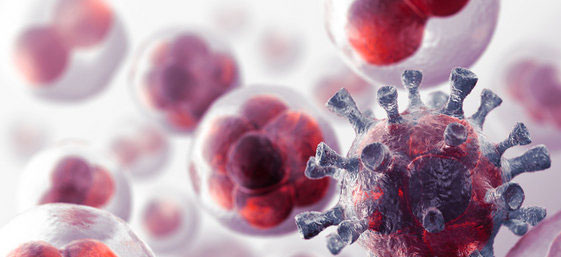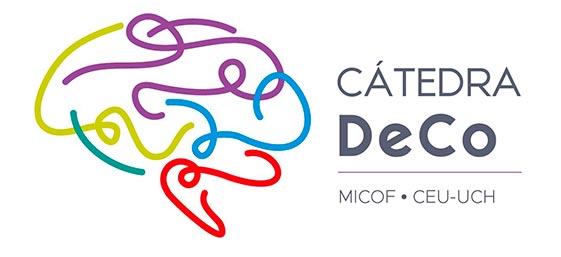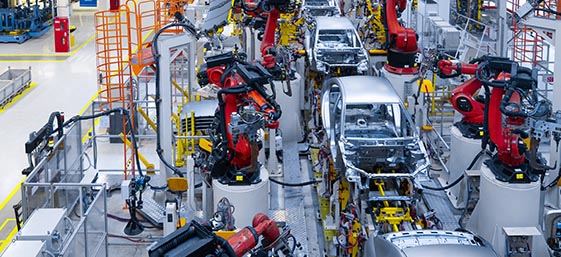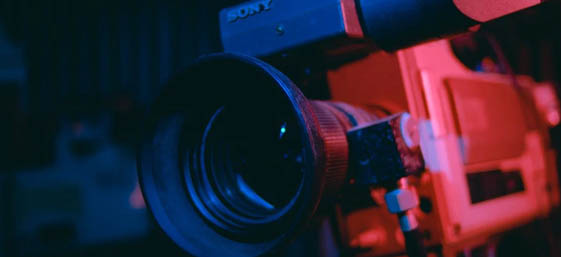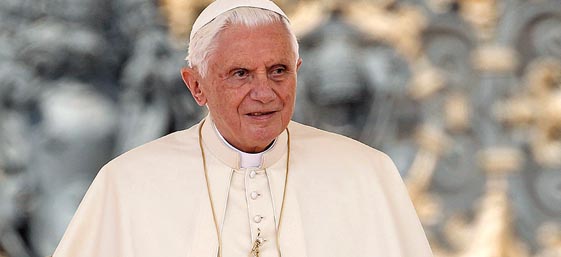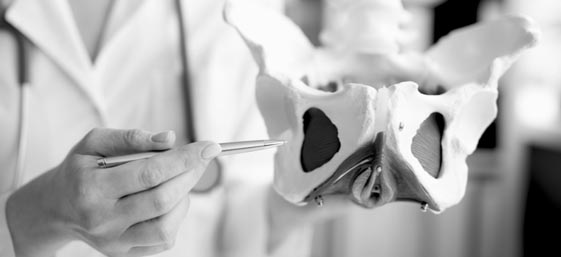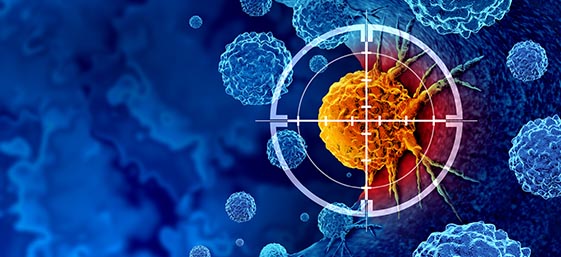Welcome
The mission of the Office of the Vice-Rector for Research (OVRR) at the CEU Cardenal Herrera University is to foster research excellence and thereby contribute to the improvement of society. This aligns with the aim of the Fundación San Pablo-CEU, founded by the Asociación Católica de Propagandistas, which is to contribute to the improvement of society through education, providing people who are valuable to it on an intellectual, professional and human level.
In order to foster high-quality research, OVRR also possesses internal policies regarding a range of internal funding opportunities.These include initiatives to attract Ramón y Cajal researchers and other senior researchers, initiatives to train pre-doctoral researchers, mobility programmes, support for Recognized Research Groups (GIRs), for lecturers who are not part of a research group, and for pre-competitive, unique or education research projects. All of this funding comes from internal resources as part of CEU Universities' Strategic Research Plans. Our researchers can apply for both internal funding and funding from external research institutions (both public and private).
The training of new researchers is led by our international doctoral school (CEINDO), in which lecturers and researchers from across all four CEU universities participate.
Administrative matters related to research are managed by the Office for Knowledge Transfer (Oficina de Transferencia del Conocimiento, OTC) . The University has 67 Recognized Research Groups (Grupos de Investigación Reconocidos, GIRs), 34 research assistants, 7 Ramón y Cajal researchers, 4 research institutes, 3 research observatories and 8 Research chairs, which receive external funding. Working alongside the Scientific Culture Unit , our researchers transfer, disseminate and publicize the knowledge they have gained, thereby making a significant contribution to society.
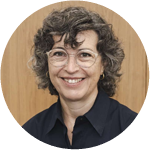
Dra. Alicia López Castellano
Vice-Rector for Research and Transfer
Office of the Vice-Rector for Research and Transfer
Emilio García Sánchez
Deputy Vice-Rector for Research and Transfer
Carrer Assegadors, 2
46115 Alfara del Patriarca
Tlf. +34 96 136 90 00/11 ext. 61321
María Isabel Fortea Gorbe
Coordinator of the Administrative Units for Research, Knowledge Transfer and Dissemination
Carrer Assegadors, 2
46115 Alfara del Patriarca
Tlf. +34 96 136 90 00/11 ext. 64341
Emilia Marmaneu González
Secretaría
Carrer Assegadors, 2
46115 Alfara del Patriarca
Tlf. +34 96 136 90 00/11 ext. 61203
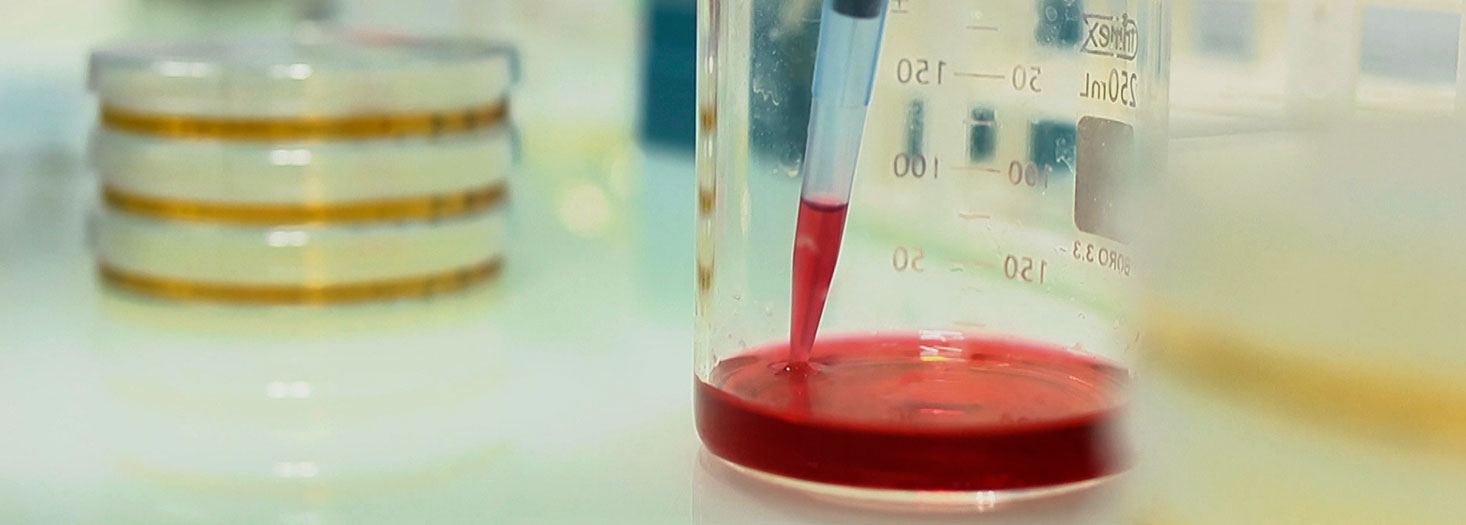
Our Reasons for Researching
Administrative Units for Research, Knowledge Transfer and Dissemination
María Isabel Fortea Gorbe
Coordinator
UGI (Administrative Unit for Research)
The UGI administers the University's internal research plan and applications for external funding.
Guna Ciekurzne
Head of the Research Management Unit
Silvia Sáez Gascón
Head of Financial Administration - General Manager's Office
Laura Carretero Barrios
Financial Administration - General Manager's Office
OTC (Office for Knowledge Transfer)
The OTC coordinates the relationship between the University, society and business, fostering the transfer of knowledge generated by CEU UCH to society and wealth generators. It does this by facilitating collaboration between the University's research groups, companies and public bodies through establishing research agreements, contracts, patents, utility models, spin-offs, etc. This knowledge transfer occurs by means of CEU UCH's research institutes and research chairs.
From 2024, the OTC is listed on the Register of Knowledge Transfer Offices maintained by Spain's Ministry of Science, Innovation and Universities.

Nadia Ayelén Echegaray Alí
Director of the Knowledge Transfer Office
UCC+i (Scientific Culture and Innovation Unit)
The UCC+i's role is to disseminate the work of our researchers and to promote interest in R&D&I via awareness-raising activities.
From 2024, it forms part of the UCC+i network set up by Spain's national science and technology foundation, FECYT.
Elisa Marco Crespo
Head of the UCC+i
Lorena Fernández Correas
R&D&I Administration Officer

UAI (Researcher Support Unit)
- The UAI provides guidance and support to our researchers regarding internal and external R&D&I funding opportunities and opportunities for collaboration with companies.
- Guidance for researchers with regard to issues such as bibliometrics, research assessment exercises, new qualitative indicators, research ethics and administrative issues.
- Implementation of CoARA activities.
Laura Herminia Grela Sánchez
Senior Officer - Bibliometrics
Beatriz Perelló Marín
Administrative Officer - Information regarding ethics committees
Applications and useful links for researchers
Internal research-related regulations
- Regulations Regarding the Recognition of Research Groups at the CEU Cardenal Herrera University/a>
- CEU UCH Regulations for Research and Teaching Visits
- Regulations for the Creation of Research Chairs
- Regulations on the Creation of Observatories and Similar Structures at CEU Cardenal Herrera University
- Standardization of Affiliation Statements in Research, Technical or Artistic Publications of Academic Staff at CEU Universities
- Regulation on knowledge transfer and innovation
- Institutional Policy Concerning Open Access at the CEU Cardenal Herrera University
Research assessment
- San Francisco Declaration on Research Assessment: DORA
- Leiden Manifesto
- Agreement on Reforming Research Assessment
- CoARA
OPII (Office for International Research Projects)
Announcement of international research opportunities, promotion of researcher involvement in new projects, guidance, support in the search for research partners, training for the drafting of proposals and administrative support for approved projects.
Gemma García Zato
Coordinator of International Research Strategy – USP CEU Universities Area, Director's Office
Research Commission
Chair of the Research Commission
Dr. Alicia López Castellano
Vice-Rector for Research
Deputy Vice-Rector for Research & Secretary of the Commission
D. Emilio García Sánchez
Coordinator of the Administrative Units for Research, Knowledge Transfer and Dissemination
Dña. María Isabel Fortea Gorbe
Faculty of Law, Business and Political Science
Dr. Esperanza Ferrando Nicolau
Dean of the Faculty of Law, Business and Political Science
Dr. Leopoldo García Ruiz
Head of the Department of Law
Dr. Pedro Caja Meri
Head of the Department of Economics and Business
Dr. Emilio Callado Estela
Head of the Department of Political Science, Ethics and Sociology
Dr. Gonzalo Rubio Irigoyen
Researcher at the Department of Economics and Business
Dr. Susana Sanz Caballero
Researcher at the Faculty of Law, Business and Political Science
Faculty of the Humanities and Communication Sciences
Dr. José Manuel Amiguet Esteban
Dean of the Faculty of Communication Sciences
Dr. Enrique Anrubia Aparici
Head of the Department of the Humanities
Dr. Jorge Pérez Llavador
Head of the Department of Communication and Journalism
Dr. José Martínez Sáez
Head of the Department of Audiovisual Communication and Advertising
Dr. Rocío López García-Torres
Head of the Department of Education
Dr. Fernando Gómez Gonzalbo
Castellón Campus
Faculty of Health Sciences
Dr. María Miranda Sanz
Dean of the Faculty of Health Sciences
Dr. Maria Miranda Sanz
Head of the Department of Biomedical Sciences
Dr. Eugenia González Rosende
Head of the Department of Pharmacy
Dr. Laura García Garcés
Head of the Department of Nursing and Physiotherapy
Dr. Belén Merck Navarro
Head of the Department of Medicine and Surgery/p>
Dr. Marta Ribelles Llop
Head of the Department of Dentistry
Dr. Juan Francisco Lisón Parragán
Researcher at the Faculty of Health Sciences
Faculty of Veterinary Medicine
Dr. Joaquín Sopena Juncosa
Dean of the Faculty of Veterinary Medicine
Dr. Empar García Roselló
Head of the Department of Animal Medicine and Surgery
Dr. David Viana Martín
Head of the Department of Animal Production and Health, Public Veterinary Health and Food Science and Technology
Dr. Jose Quereda Torres
Researcher at the Faculty of Veterinary Medicine
ESET (School of Architecture, Engineering and Design)
Dr. D. Ignasi Rosell Escribá
ESET (School of Architecture, Engineering and Design)
Dr. D. Antonio Falcó Montesinos
Head of the Department of Mathematics, Physics and Technological Sciences
Dr. D. Andrés Ros Campos
Head of the Department of Design and Architecture
Institute of Innovation, Design and Technology (IDIT)
Dr. D. Fernando Sánchez
IDIT Director
Institute of Biomedical Sciences (ICB)
Dr. D. Juan José Amer Cuenca
ICB Director
Ángel Ayala Institute of Humanities
Dr. D. Rafael Fayos Febrer
Ethics Committee for Biomedical Research (CEIB)
Dra. Dña. Laura García Garces
Committee Secretary
Animal Experimentation Ethics Committee
Dra. Dña. Begoña Ballester Lurbe
Committee Secretary
Ethics Committee
Commission for Scientific Integrity and Best Practices in Research
The Commission for Academic Integrity and Best Practices in Research at the CEU Cardenal Herrera University is made up of the Rector of the University, the Vice-Rector for Research and the Deputy Vice-Rector for Research. The overall aim of the Commission is to ensure the academic integrity of all research processes in which the University's researchers participate. The CEU Cardenal Herrera's Single Regulatory Document contains a series of recommendations for researchers to follow in order to ensure that academic integrity is maintained when proposing research activities and throughout the research process itself, by avoiding poor practices and misconduct.
The most important of these recommendations are:
- To employ HONESTY AND TRUTHFULNESS in one's own activities, when collaborating with colleagues, and throughout the whole research process, from the experimental phase to the publication of the research findings.
- For all researchers and group members to possess PERSONAL RESPONSIBILITY for their actions.
For queries and complaints write to: [email protected]
Human Research Ethics Committee (CEIH)
The mission of this body, reporting to the Office of the Vice-Rector for Research and therefore part of the structure of the CEU Cardenal Herrera University, is to ensure that ethical principles are respected when carrying out research with human participants. These principles are internationally recognized and enshrined in documents such as the Declaration of Helsinki, the European Conventions on Human Rights and Bioethics, and the Magisterium of the Church.
Biomedical research forms are a key part of today's scientific endeavours, which seek to increase social well-being, quality of life and life expectancy. Our objective is to ensure that research activities take place within a high-quality, ethical, safe, and lawful framework.
The Committee also seeks to support, inform and guide researchers in the biomedical research field, helping them to stay within the Spanish and European legal framework and ensuring that participants' rights and welfare are protected.
What do you have to do if you want to carry out a biomedical research study? If you are a researcher at the CEU Cardenal Herrera University (UCH), you can access information about the application and evaluation process through thislink.
Animal Experimentation Ethics Committee (CEEA)
Royal Decree 53/2013, of 1st February, establishing the basic regulations for the protection of animals used in experiments and for other scientific purposes, including teaching was published in the BOE of 8th February 2013. This Royal Decree makes it mandatory for all procedures with animals to be assessed by an ethics committee and by an órgano habilitado, i.e., a body which has been officially authorized to perform the assessment of such procedures.
The CEU UCH's Animal Experimentation Ethics Committee was established to meet the legal requirements with regard to experimental procedures and teaching activities involving animals.
Our objective is to ensure that research activities take place within a high-quality, ethical, safe, and lawful framework.
The Committee also seeks to support, inform and guide researchers carrying out experiments with animals, helping them to stay within the legal framework and ensuring animal welfare as a priority.
CEU UCH has been certified by Valencia's regional government since April 2017 as an authorized body for the assessment of such research projects.
What do you have to do if the use of animals is necessary for your research? If you are a researcher at the CEU Cardenal Herrera University (UCH), you can access information about the application and evaluation process through this link.
Institutional declaration regarding the use of animals in experiments
The CEU Cardenal Herrera University is a signatory to the transparency agreement for animal experimentation, promoted by COSCE (the Federation of Spanish Scientific Societies) in conjunction with the EARA (the European Animal Research Association), which was formulated on 20th September 2016.
We know that animal research plays a key role in the discovery of the biological mechanisms involved in diseases and in the development of medical treatments. Without animal research, most of the medicines, antibiotics, vaccines and surgical techniques which are widely used in human and veterinary medicine would never have been developed.
Part of the research that is undertaken at the CEU Cardenal Herrera University and which contributes to the improvement of people's lives can only take place through the use of animals. Examples include work in ophthalmology, animal health, developmental studies, surgery and cancer.
Animal welfare during research processes is taken very seriously at the CEU Cardenal Herrera University. We also strictly comply with the law with regard to the protection of animals used in research and teaching activities and aim to achieve the highest standards in animal welfare. This is based both on our moral responsibility to the animals concerned and on the view that high-quality research cannot be achieved without regard for animal welfare. All the experiments undertaken involving animals are compliant with the law. They are reviewed by our Animal Experimentation Ethics Committee, which seeks to promote the use of alternative methods, a reduction in the number of animals used, and the optimization of experimental procedures. No research project requiring the use of animals can begin without the prior assessment and authorization of the project by the Animal Experimentation Ethics Committee.
The CEU Cardenal Herrera University seeks to ensure that all of the staff caring for animals and the researchers involved in animal experimentation receive the appropriate training. It also undertakes to ensure that sufficient resources are provided for the care of the animals involved in experimental procedures, with regard to facilities, nutrition, welfare, and veterinary care.
Biosafety Committee
The principal mission of the CEU Cardenal Herrera University's Bioethics Committee is to protect the health and safety of laboratory staff, researchers, students, and animals when these groups are involved in research activities through the provision of safe facilities and a safe working environment. The Biosafety Committee aims to minimize all risks associated with biological agents and genetically modified organisms. At the same time, it seeks to ensure compliance with the law at the regional, national and international levels, and compliance with internal regulations. Any research activities which are found to violate the principles of biosafety, as established through legislation or internal regulations, will be suspended. Amongst the range of applicable legislation, Royal Decree 664/1997, regarding the protection of workers from risks associated with exposure to biological agents in the workplace, is particularly important.
The Biosafety Committee (CBS) reports to the Office of the Vice-Rector for Research at CEU UCH.
What should I do if my research requires the use of biological agents and genetically modified organisms? If you are a researcher at the CEU Cardenal Herrera University (UCH), you can access information about the application and evaluation process through this link.
Sources of research funding
Convocatorias Internas
Convocatorias Externas
| Título | Publicación | Plazo | Tipo | Descargas |
|---|---|---|---|---|
| Convocatoria Trasnacional INTERHEART para proyectos de investigación e innovación centrados en la Salud y el Bienestar | Era4Health | martes, 17 de junio de 2025 | Internacional | |
| Convocatoria Conjunta Multitemática Europa-América Latina-Caribe (UE-LAC) | EU-LAC Interest Group | jueves, 22 de mayo de 2025 | Internacional | |
| EFSD and Sanofi European Diabetes Research Programme on Autoimmunity in Type 1 Diabetes | European Foundation for the Study of Diabetes (EFSD) | jueves, 15 de mayo de 2025 | Internacional | |
| M-ERA.NET CALL 2025 | M-ERA.NET | martes, 13 de mayo de 2025 | Internacional | |
| Investigator Sponsored Research-Pfizer | Pfizer | miércoles, 7 de mayo de 2025 | Internacional | |
| MSCA Postdoctoral Fellowships 2025 | EU Funding & Tenders Portal | martes, 22 de abril de 2025 | Internacional | |
| Convocatoria 2025 de la ERA_NET CHIST-ERA | CHIST-ERA | martes, 15 de abril de 2025 | Internacional | |
| CALENDARIO PREVISTO DE LAS CONVOCATORIAS DE LA AGENCIA ESTATAL DE INVESTIGACIÓN | Ministerio de Ciencia, Innovación y Universidades | Varía según convocatoria | Convocatorias | |
| Premios Real Academia de Medicina de la Comunitat Valenciana (RAMCV) 2025 | Real Academia de Medicina de la Comunitat Valenciana | viernes, 31 de octubre de 2025 | Premios | |
| Convocatoria de Subvenciones de la Acción Estratégica en Salud 2025 | Instituto de Salud Carlos III | Varía según convocatoria | Convocatorias | |
| Programa PINERA: Ayuda para Proyecto de Investigación Multicéntrico | Fundación Areces | lunes, 1 de septiembre de 2025 | Convocatorias | |
| Premios Fronteras del Conocimiento-Fundación BBVA | Fundación BBVA | lunes, 30 de junio de 2025 | Premios | |
| Convocatoria BAP SEDEM 2025: Innovación Docente e Investigación en Educación Médica | Sociedad Española de Educación Médica (SEDEM) | Varía según convocatoria | Convocatorias | |
| Premios Derechos de los Animales al proyecto más innovador en experimentación alternativa 2025 | Ministerio de Derechos Sociales y Agenda 2030 | lunes, 9 de junio de 2025 | Premios | |
| Beca de Estancia de Investigación para Formación Interdisciplinar en Neurociencia y Áreas Afines en Universidades o Centros Extranjeros 2025 | Centro Internacional de Neurociencia y Ética (CINET) | domingo, 1 de junio de 2025 | Becas | |
| Premios Sociales Fundación MAPFRE | Fundación MAPFRE | sábado, 31 de mayo de 2025 | Premios | |
| XII Premio Internacional de Seguros Julio Castelo Matrán | Fundación MAPFRE | sábado, 31 de mayo de 2025 | Premios | |
| Becas de Investigación sobre Bioética2025-Fundació Victor Grífols i Lucas | Fundació Victor Grífols i Lucas | sábado, 31 de mayo de 2025 | Convocatorias | |
| Premios de Física Real Sociedad Española de Física-Fundación BBVA 2025 | Fundación BBVA | martes, 20 de mayo de 2025 | Premios | |
| Premios de Innovación Científica para Jóvenes Investigadores 2025. Fundación Pfeizer | Fundación Pfeizer | viernes, 16 de mayo de 2025 | Premios | |
| VIII Premio a la investigación médica en el ámbito oncológico. Fundación Ángel Muriel | Fundación Ángel Muriel | lunes, 5 de mayo de 2025 | Premios | |
| VII Premio Biophilia 2025 de Humanidades y Ciencias Sociales Medioambientales | Fundación BBVA | miércoles, 30 de abril de 2025 | Premios | |
| Premios de Investigación Doctora de Alcalá a la Excelencia Investigadora 2025 | Universidad de Alcalá | miércoles, 30 de abril de 2025 | Premios | |
| Premio Luis Felipe Torrente de Divulgación sobre Medicina y Salud | Fundación Lilly | miércoles, 30 de abril de 2025 | Premios | |
| Swiss Bridge Award 2025 | Fundación Swiss Bridge | martes, 29 de abril de 2025 | Premios | |
| XIX Premio Francisco Cobos | Fundación Francisco Cobos | viernes, 25 de abril de 2025 | Convocatorias | |
| Premios MEDES 2025 - XVI Edición | Fundación Lilly | jueves, 24 de abril de 2025 | Premios |
Internal research funding at CEU UCH - annual programmes
- Unique Projects (Proyectos Singulares) Programme 2024-2025
- Clinical Research Grants 2024-2025
- Grants for lecturers who are not part of a recognized research group (GIR) 2024-2025
- Grants for Research + Teaching Projects 2024-2025
- Grants for Recognized Research Groups (GIRs) 2024-2025
- Grants for Pre-Competitive Research Projects 2024-2025
- Grants for Research Projects in Strategic Identity Areas 2024-2025
- CEU Santander Grants for Hiring Trainee Researchers 2024–2025
- CEU Research Mobility Grants 2024
- First Six-Year Research Period Grants 2024-2025
- Grants for the Consolidation of Research Indicators 2024-2025
- Sabbatical Period Grants 2024-2025
- Research Skills Training Grants 2024-2025

Special Seminars
In this seminar series, experts from leading research centres are invited to share with us the latest developments in their field.
Contact: José Luis Nieto
Journal clubs
These sessions offer an opportunity to discuss the latest papers and developments in the fields in which our researchers work.
Contact: Enric Poch
Work in Progress
These sessions allow researchers from research groups and projects to share the results of their work with the university community. They are an opportunity to announce progress, present preliminary results, and discuss new proposals to continue to improve and move forward.
Contact: Ángel Gómez Martín
CEU Respect Animal Welfare
This series of talks seeks to raise awareness about the regulations concerning the use of animals in scientific research when other alternatives are not available. More on the how, why and what for of animal research while safeguarding animal welfare on YouTube.
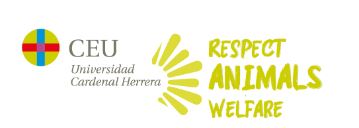
Teaching + Research
Undergraduate students participate in these projects, kicking off their research career. Under the supervision of lecturers who are members of research groups, the students take part in the groups' research activities and take their first steps in the research world.
International Student Congress (CIE)
The International Student Congress (Congreso Internacional de Estudiantes, CIE) is an opportunity for students to begin researching, improve their scientific skills and present their own studies at an academic event.
CIE 2025Contact: CIE Organizing Committee
More about CIE
The International Student Congress of CEU Cardenal Herrera University (CIE) aims to foster an interest in research among the university's students. Moreover, it is a cross-disciplinary activity, open to all students of the university regardless of their field of study.
The CIE has become one of the university's flagship events due to the value it offers both to our students and to those from other universities. Over the two days of the Congress, the aim is to recreate the usual procedures of scientific conferences, where researchers present their work's advancements to the scientific community. The CIE replicates all the steps that occur in professional and research reality, allowing students to experience the full research process: from observing a real-world phenomenon or formulating a hypothesis that needs to be tested, to designing the research, conducting empirical work, achieving results and conclusions, and presenting and defending the research.
If you are a university student, the International Student Congress (CIE) is an experience you cannot miss for several reasons:
- You will experience a different university life, outside the day-to-day routine of classes, centered around research.
- You will discover the world of research, both within and outside CEU UCH, and realize that this world is close and within your reach.
- You will develop the most useful skills in the field of research, which you can later apply in your professional life.
Participate
Over 400 students and 150 presentations participated in the last edition of the International Student Congress.

Scientific Culture and Innovation Unit (UCC+i)
The UCC+i aims to promote the dissemination of research at CEU UCH via publications in both general and specialist media. Research news at CEU UCH is published on our Actualidad CEUwebsite, on X and via our YouTube playlists such as Ciencia CEU UCH, Cómo, por qué y para qué investigamos con animales, Patented by CEU UCH y/o MujereSTEAM, mujeres en la ciencia
Contact: Elisa Marco



